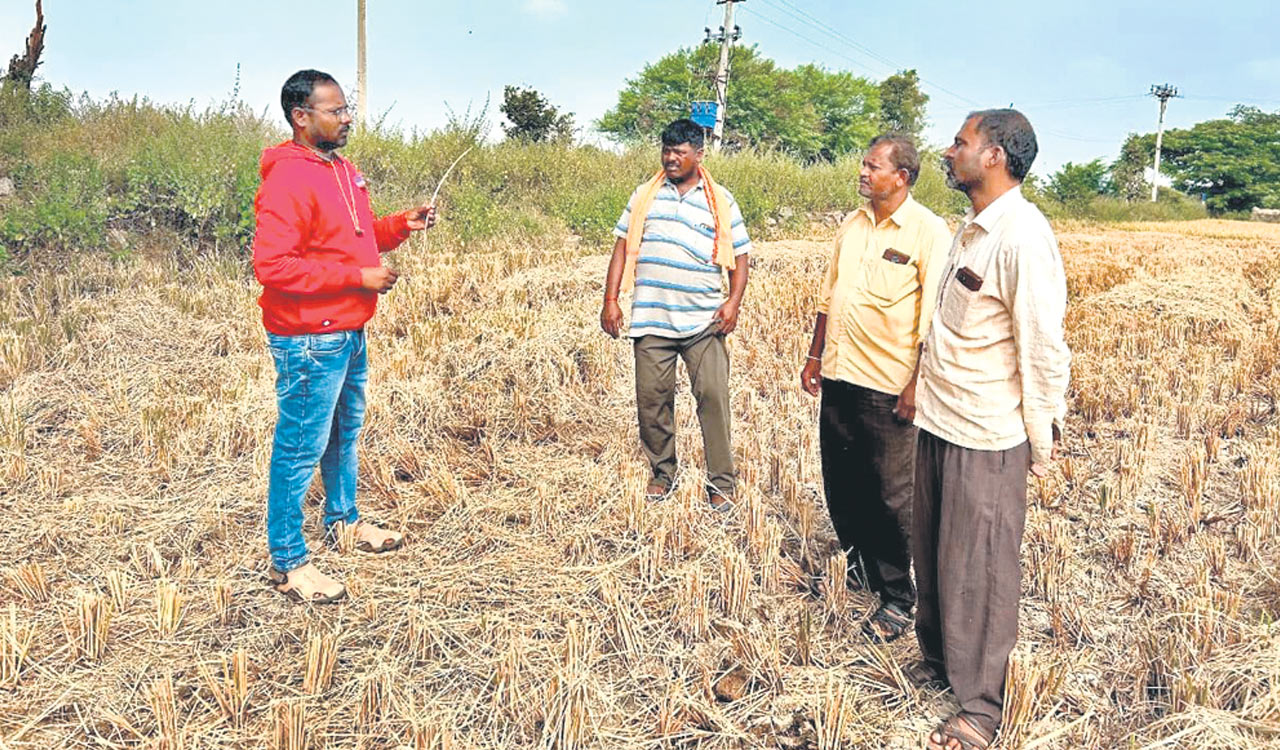Under the guidance of Agriculture Extension Officer T Nagarjuna, farmers in the cluster are learning to decompose the stubble following guidelines issued by Nagarjuna
Published Date – 05:31 PM, Sat – 9 December 23

AEO is talking to farmers on decompsing stubble rather than burning in Narayanraopet of Siddipet district.
Siddipet: Even as burning of paddy stubble has become a controversial issue in other States, farmers of the Narayanpet cluster are turning the issue into an opportunity to decompose the stubble to enrich soil health.
Under the guidance of Agriculture Extension Officer (AEO) T Nagarjuna, farmers in the cluster are learning to decompose the stubble following guidelines issued by Nagarjuna. Over 500 farmers followed the practice before the Vanakalam season. One farmer, Gaddam Balaraju, who practised it before the Vanakalam season, said he got a better yield than his neighbouring farmers this season.
As farmers are again preparing for Yasangi paddy cultivation, the AEO has been busy conducting sensitisation programmes for farmers under his cluster. Speaking to Telangana Today, Nagarjuna said he had seen many farmers burning the stubble, which was not only causing environmental pollution but also taking the nutrients away from the soil.
The stubble, under normal circumstances, would take 30 to 35 days to decompose naturally. However, it can be decomposed within 15 days following a special method, he said. The farmers need to develop a decomposer by mixing two kilos of jaggery, and 30 ml of waste decomposer powder in 200 litres of water. Once this gets fermented, which normally takes 5 days, it can be sprinkled in the fields 10 days before the farmers begin ploughing.
The AEO said stubble burning would also result in soil erosion and cause the loss of useful microbes and moisture in the soil. On the other hand, the decomposing of stubble was found to add nutrients such as nitrogen, phosphorus, zinc, manganese, iron and calcium, which would eventually increase the soil health and productivity.


